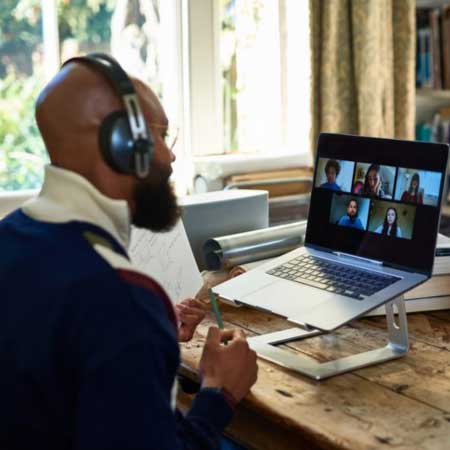Explore the DigitalCrafts Blog
The DigitalCrafts blog shares ideas, information and tips aimed at helping you get ahead personally and professionally, with topics ranging from online learning success to career development.
-

Second Issue of the AIUS Journal of Research & Scholarship Publishes
The American InterContinental University System (AIUS) is excited to share that the second issue of the AIUS Journal of Research & Scholarship has published! Packed with research and knowledge, the second issue shares ten articles and one book review.
Published: November 05, 2025 Readtime: 2 Minutes -

AIUS Launches Inaugural Issue of Its Academic Journal
The American InterContinental University System (AIUS) is proud to announce the launch of the AIUS Journal of Research & Scholarship, with the publication of its very first edition: Volume 1, Issue 1.
Published: June 05, 2025 Readtime: 3 Minutes -

Are Cybersecurity Bootcamps Right For You?
Cybersecurity bootcamps are intensive programs that cover a large amount of foundational cybersecurity skills and knowledge in a relatively short amount of time (compared to traditional degree programs).
Published: March 03, 2025 Readtime: 9 Minutes -

Popular Programming Languages
While many different programming languages exist—with estimates ranging from a low of around 200 to 300 to a high of several thousand, depending on the source—there are a few that stand out as more popular than the rest.
Published: January 03, 2025 Readtime: 5 Minutes -

What is AI?
Although artificial intelligence (AI) has become something of a household term since the public release of Open AI’s ChatGPT in November 2022, defining AI in a universally agreed-upon and easy-to-understand way has proved somewhat elusive.
Published: October 30, 2024 Readtime: 6 Minutes -

Is a Coding Bootcamp Right for You?
In our coding bootcamps, students are introduced to multiple programming languages including Javascript. We provide them with instruction related to front-end and back-end development. As they explore these skills, students are expected to practice their skills.
Published: June 08, 2023 Readtime: 3 Minutes -

Full-Time Coding Bootcamps versus Part-Time Coding Bootcamps
If you are interested in the world of software and web development, chances are you have heard of coding bootcamps. Coding bootcamps have become one option for people looking to change their career path to IT or tech. People who may already have a degree or who want to bypass a traditional two or four-year degree program might consider a coding bootcamp as an alternative to study skills needed for their chosen career path.
Published: June 01, 2023 Readtime: 3 Minutes -

Scholarships and Grants for Diverse Tech Students
DigitalCrafts is committed to improving the diversity in technology from a gender, race, and socioeconomic perspective. As such, we are proud to offer the following scholarships to qualified students. We established these scholarships to help level the playing field for our prospective students.
Published: May 25, 2023 Readtime: 3 Minutes -

4 Bad Coding Habits to Eliminate From Your Routine
We all have working methods and coding practices that suit us, but it’s easy to pick up a variety of bad habits when first learning to code.
Published: March 16, 2023 Readtime: 6 Minutes -

From High School Teacher to Scrum Master: A Bootcamp Graduate’s Educational Journey
A career pivot takes courage and focus. Learn about Web Development bootcamp graduate Lee Arnold’s journey from high school social studies teacher to scrum master.
Published: March 07, 2023 Readtime: 3 Minutes
